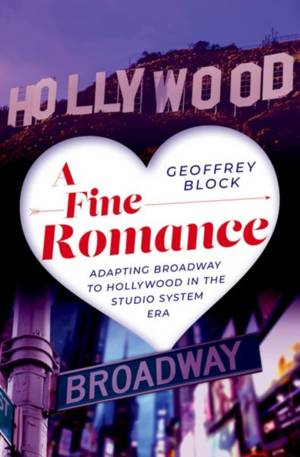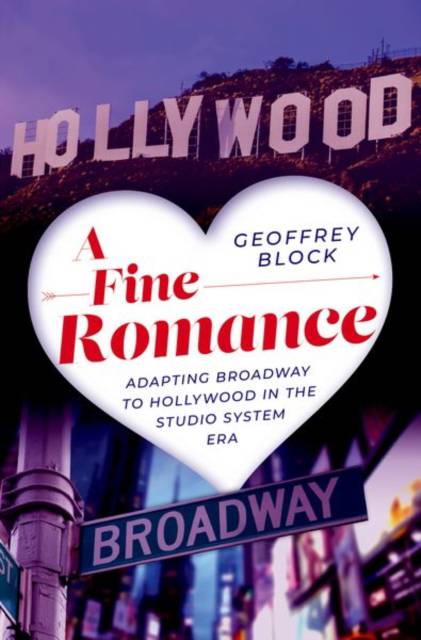
- Afhalen na 1 uur in een winkel met voorraad
- Gratis thuislevering in België vanaf € 30
- Ruim aanbod met 7 miljoen producten
- Afhalen na 1 uur in een winkel met voorraad
- Gratis thuislevering in België vanaf € 30
- Ruim aanbod met 7 miljoen producten
Zoeken
A Fine Romance
Adapting Broadway to Hollywood in the Studio System Era
Geoffrey Block
Hardcover | Engels
€ 33,45
+ 66 punten
Omschrijving
How do we compare a Broadway musical to its Hollywood counterpart? A Fine Romance: Adapting Broadway to Hollywood in the Studio System Era answers this question by exploring the symbiotic relationship between a dozen Broadway musicals and their Hollywood film adaptations. From enduring classics like Oklahoma!, Brigadoon, and West Side Story to lesser-known gems such as Cabin in the Sky, Call Me Madam, and Silk Stockings, author Geoffrey Block examines some of the best loved stage and screen musicals of all time as well as neglected works that deserve our attention and respect. Block delves into what happens during the transfer of stories from stage to film, the critical criteria that motivates decisions to alter or preserve stage elements when adapting to film, and the dramatic and musical consequences at play in these artistic and commercial choices. In telling this story, A Fine Romance engages with aesthetic and critical concerns while also considering the social issues around Broadway and Hollywood film through the lenses of race and ethnicity, class, gender, and sexual identity. Beginning with the stage debut of Show Boat in 1927 and concluding with the release of Bob Fosse's cinematic re-envisioning of Cabaret nearly a half century later in 1972, the romance between Broadway and Hollywood was frequently turbulent. Differing commercial and aesthetic models and goals of Broadway and Hollywood created both conflicting and harmonious collaborations. Attempts at economic and artistic domination, irreconcilable differences, and occasional broken promises ensued. At other times, the screen and stage creative teams aligned, resulting in well-crafted, much admired, and frequently breathtaking films.
Specificaties
Betrokkenen
- Auteur(s):
- Uitgeverij:
Inhoud
- Aantal bladzijden:
- 368
- Taal:
- Engels
Eigenschappen
- Productcode (EAN):
- 9780197501733
- Verschijningsdatum:
- 31/03/2023
- Uitvoering:
- Hardcover
- Formaat:
- Genaaid
- Afmetingen:
- 165 mm x 237 mm
- Gewicht:
- 771 g

Alleen bij Standaard Boekhandel
+ 66 punten op je klantenkaart van Standaard Boekhandel
Beoordelingen
We publiceren alleen reviews die voldoen aan de voorwaarden voor reviews. Bekijk onze voorwaarden voor reviews.











